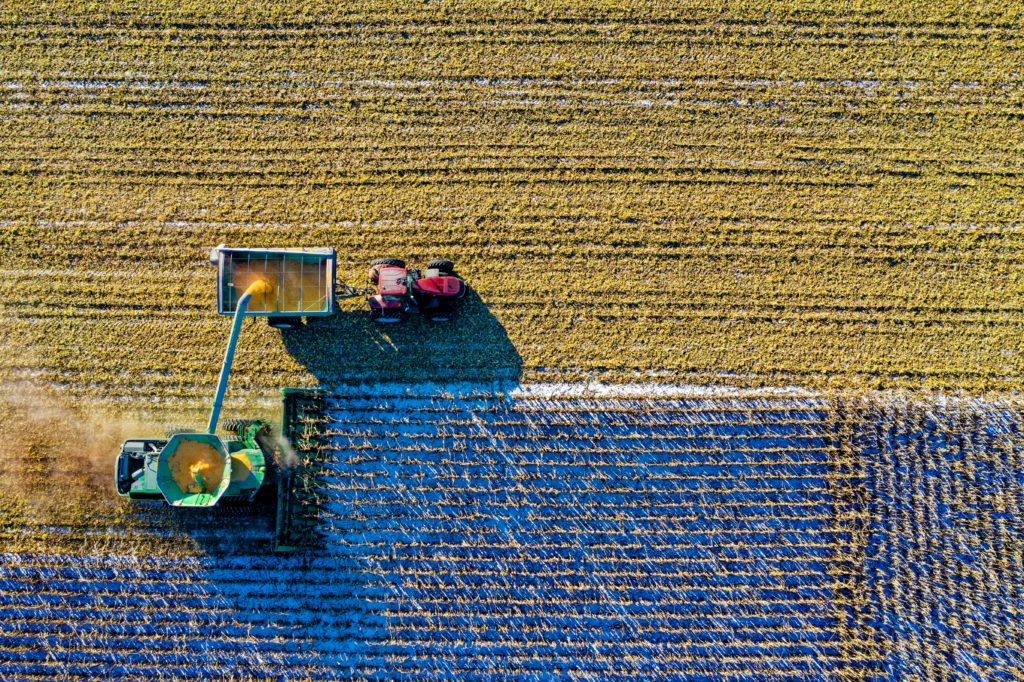Before World War II happened, Bulgaria’s agriculture division was known to be its leading sector in the Bulgarian economy. In fact, in 1939, Bulgaria’s agriculture contributed to about 65 percent of NMP or net material product, and nearly four out of five Bulgarians were working in agriculture. However, the war changed Bulgaria’s agriculture drastically, but it never stopped finding different ways to improve its productivity. That is why in this article, we are going to talk about the main agricultural crops in Bulgaria.
Agriculture in Bulgaria
Bulgaria is known to be one of the world’s biggest producers of rose oil and lavender. It is also known for its oriental tobacco, sheep’s milk cheese, rose attar, wine, medicinal herbs, and natural yogurt.
Bulgaria has a temperate climate, good soil conditions, and abundant arable land that can support crops and livestock farming. Probably the most important of Bulgaria’s crops is the Tobacco plant because it contributes to about 20 percent of agricultural goods’ value.
In 2018, Bulgaria managed to produce:
- 3.4 million tons of maize
- 5.8 million tons of wheat
- 471 thousand tons of rapeseed
- 1.9 million tons of sunflower seeds (which made them the 7th largest sunflower seed producer in the world)
- 261 thousand tons of potato
- 437 thousand tons of barley
- 148 thousand tons of tomatoes
- 195 thousand tons of grape
Bulgaria is also known to focus on other agricultural products such as:
Fisheries
Bulgaria is known to have practiced catch of sea and freshwater fish as well as fish farming in ponds. They are also known to breed and hunt other aquatic organisms such as shrimp, sea snails, and clams.
Livestock Products
Bulgarians grow buffalo, cattle, goats, chickens, sheep, pigs, ducks, turkeys, geese, and other farm animals. They produce about 250,000 tons of milk every year, along with 1.2 million eggs and 211 thousand tons of meat.
Forestry
In the past few years, the total forest areas in Bulgaria have been steadily increasing. In fact, in the latter part of 2013, the forest areas in the country amounted to 4,180,121 hectares or about 37.7 percent of the country. Bulgarian forests are known to be extremely rich in biodiversity of deciduous and coniferous tree species.
Technical crops
- Lavender
- Oilseed rose
- Peanuts
- Canola
- Soybeans
- Cotton
- Fennel
- Pumpkin seeds
- Hops
- Tobacco
Cereals
- Rye
- Wheat
- Corn
- Barley
- Lentils
- Rice
- Alfafa
Vegetables
- Onion
- Tomatoes
- Cucumbers
- Hot peppers
- Eggplants
- Carrots
- Zucchini
- Cabbage
- Potatoes
- Squash
Fruits
- Apricots
- Apples
- Prunes
- Cherries
- Quinces
- Rosehips
- Raspberries
- Blackberries
- Plums
- Pears
- Blueberries
Timeline of Important Events in Bulgaria’s Food and Agriculture Sector
14-19th Century
Farming was the main livelihood for the predominantly rural population of Bulgaria during Ottoman rule.
1882
A man named Franz Milde was helped by a group of enterprising residents of Shumen to start the company Shumensko Pivo, one of the oldest breweries in Bulgaria today.
1898
Ernest Solvay, the founder of the Belgian conglomerate Solvay, launched the first Bulgarian sugar factory in Sofia.
1965
During this year, Bulgaria became the first country in the former Communist bloc to produce Coca-Cola.
The 70s – 80s
Bulgaria became the world’s second-largest exporter of bottled wines during these decades.
The 1980s
During this decade, Bulgaria became the first tomato exporting country in Europe because they were able to produce 220,000 tonnes of tomatoes annually.
The 1990s
During the ‘90s, Bulgaria because the world’s largest exporter of rose oil, which is commonly used in the perfume industry.
1994
The world’s largest international food producers, Nestle S.A and Kraft Foods, decided to invest heavily in Bulgaria’s economy.
2008
Bulgaria managed to export milk, cheese, and yogurt 30% higher compared to the previous years. Not only that, Bulgarian milk and dairy products are known for their health-promoting qualities.
2014
Bulgaria became the biggest lavender producer in the world.
